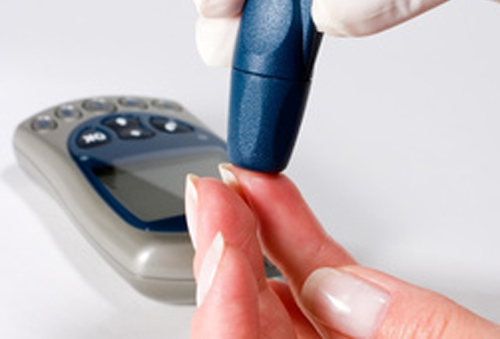The results of a trial in Japan have found that daily vitamin D supplements do not appear to prevent the development of type 2 diabetes mellitus in people already at high risk of the condition. The findings did indicate that while taking the vitamin D supplement eldecalcitol had no clinically meaningful effect in high-risk adults, there may be some benefit for people with insufficient insulin secretion, although this will need further investigation. Tetsuya Kawahara, PhD, at the University of Occupational and Environmental Health, in Kitakyush, and colleagues, reported on the trial findings in The BMJ, in a paper titled, “Effect of active vitamin D treatment on development of type 2 diabetes: DPVD randomized controlled trial in Japanese ,” in which they concluded, “Although treatment with eldecalcitol did not significantly reduce the incidence of diabetes among people with pre-diabetes, the results suggested the potential for a beneficial effect of eldecalcitol on people with insufficient insulin secretion.”
The global prevalence of diabetes was 425 million adults in 2015, and this figure is estimated to increase to 629 million people by 2040, the authors noted. Another 352 million people have impaired glucose tolerance or prediabetes—higher than normal blood sugar levels that, if left untreated, can develop into type 2 diabetes. Weight loss and exercise can lower the risk of progression to type 2 diabetes, but are difficult to sustain, so new strategies are needed to tackle the problem.
Some studies have shown that vitamin D deficiency is associated with an increased risk of future diabetes, but trials of vitamin D supplements for preventing type 2 diabetes have shown inconsistent results. “Although several intervention studies and a recent meta-analysis have suggested that vitamin D supplementation may have a beneficial effect on glycaemic control, relatively large scale clinical studies and other meta-analyses of randomized clinical trials have not supported this finding,” the researchers wrote. “Whether vitamin D supplementation is beneficial only for children with vitamin D deficiency is unclear, as is which bone metabolism markers may be associated with the improvement in insulin resistance after treatment.”
To address this knowledge gap, researchers carried out a prospective trial, the Diabetes Prevention with active Vitamin D (DPVD) study, to investigate whether taking 0.75 μg per day of eldecalcitol (an active form of vitamin D used in Japan to treat osteoporosis) could reduce the risk of developing type 2 diabetes among people with impaired glucose tolerance.
The team assessed the results from 1,256 Japanese adults with impaired glucose tolerance, who were recruited from three hospitals between June 2013 and August 2019. Their average age was 61 (range 30–78) years, 46% were women, and 59% had a family history of type 2 diabetes. Participants were randomly assigned to receive either a standard daily dose of eldecalcitol (630 participants) or placebo (626 participants) and were assessed for diabetes every three months over a three-year follow-up period.
During this period, the researchers found no meaningful differences between the numbers of participants in each group who developed diabetes (12.5% in the eldecalcitol group, and 14% in the placebo group), or whose blood sugar levels returned to normal (23% in the eldecalcitol group and 20% in the placebo group).
However, after adjusting for 11 potentially influential factors, including age, sex, blood pressure, body mass index, and family history of diabetes, the results did suggest that eldecalcitol might prevent type 2 diabetes in pre-diabetic patients with insufficient insulin secretion. “We showed that eldecalcitol was effective for preventing the development of type 2 diabetes after adjustment for these covariables (hazard ratio 0.69, 0.51 to 0.95) at the significant level of P=0.020,” they wrote. This finding remains unclear, and the researchers say further work is needed before any firm conclusions can be made.
They did in addition find a significant increase in both lower back and hip bone mineral densities among those taking eldecalcitol compared with placebo. No significant difference in serious adverse events was seen between the two groups.
The researchers acknowledge some limitations to the trial, and some uncertainties, such as whether the dose of eldecalcitol used was appropriate for preventing diabetes, and whether the results might apply to all ethnicities. Nevertheless, this was a large trial with regular follow-up and high adherence to treatment, suggesting that the findings are robust. “Our trial has many strengths including a large population size, outpatient follow-up every three months, high rates of follow-up, and high adherence to the trial regimen,” they noted. “Moreover, this is the first published randomised controlled trial to assess the preventive effect of active vitamin D treatment on the development of type 2 diabetes in a pre-diabetic population and showed its beneficial effect on participants with insufficient insulin secretion. The team is now calling on further research to help determine whether vitamin D is beneficial to people with pre-diabetes.
The results of the newly reported trial are consistent with those of two other recent trials, said Tatiana Christides at Queen Mary University of London in a linked editorial.
However, several questions remain, she wrote, including whether vitamin D supplementation may be more effective for particular populations, and whether longer duration of treatment or younger age at initiation might be more beneficial. And the reported trial may have been underpowered to detect a small effect, she noted. “A recent meta-analysis of intervention trials found a significant reduction in risk ofT2DM of approximately 10% among participants given vitamin D supplements—a difference too small to be detected by the new trial, which was powered to find differences of 36% or more. Although a 10% risk reduction is modest, it may be valuable at the population level and justifies further study.”
Until further data are available from high-quality randomized trials, Christides suggested that healthcare professionals “should continue to discuss with patients the musculoskeletal health benefits of vitamin D and support them to achieve and maintain lifestyle changes that, although challenging to sustain, are known to decrease development of type 2 diabetes.”



